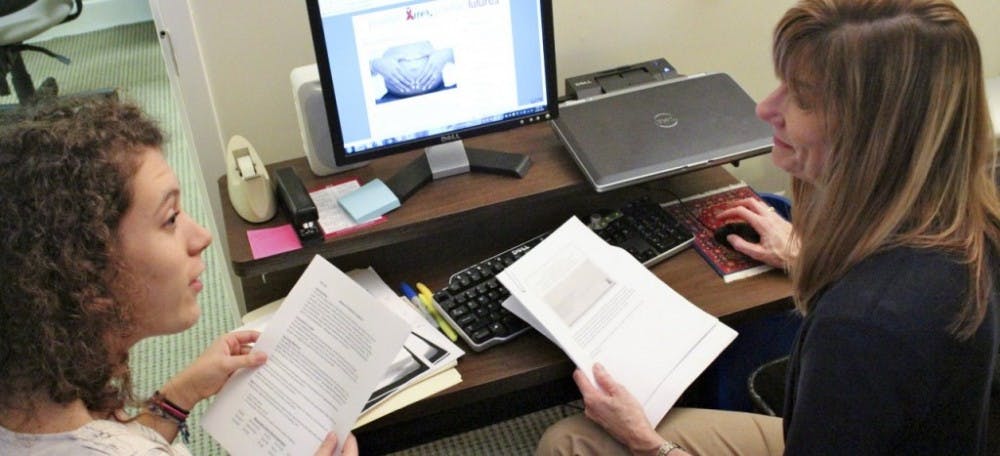For senior Jamie Albright, a serious illness led to promising research opportunities. A medical emergency in her teenage years led to a lifelong passion, and the relationship continues to flourish.
“I became very ill and, as a result, had half of my left lung removed,” she said. “This made me realize that sickness cannot be compartmentalized in our lives.”
Albright, a public health major, is a recipient of the 2012 Thomas Barnett “Breaking Down Barriers” Scholarship, as well as the Lumen Prize. Her research involves the communication between young adults living with perinatal HIV (PHIV) and their medical providers. PHIV is transmitted during pregnancy, delivery or breastfeeding.
To Albright, the subject is about more than the health industry.
“Illness lends meaning to our everyday lives that extends beyond transient pain and suffering,” she said.
Her research examines conversations about sexual and reproductive health, including romantic relationships and having children.
Albright’s interest in the subject stems from her personal experiences as a teenager.
This realization steered her toward researching the economic disparities that may occur as a direct result of illness.
“I was naturally drawn to the topic, considering my own illness experience and because my good fortune in having health insurance compels me to work with underserved populations,” Albright said. “Many economic disparities in this country are intertwined with health disparities, and in some cases, health issues can lead to poverty.”
Albright’s research mentor, Cynthia Fair, a professor of human service studies, also recognized Albright’s passion for improving the lives of others.
“Albright is deeply committed to improving the human condition,” Fair said.
According to Fair, the relationship between young adults and medical practitioners. Albright recognized the importance of this relationship while undergoing dramatic life experiences.
“I remembered how much my doctors’ messages influenced me during my own illness and wondered if this held true for young adults with PHIV as well,” she said. “I wanted to know whether medical providers were letting their patients know that aspects of life, such as having children, is possible.”
Albright attributes her most satisfying moments to her interactions with the young adults that make up a large part of her data collection. Her research influenced the development of her website, Positive Lives, Positive Futures. The site will facilitate and encourage open communication among young adults with similar illnesses.
Despite Albright’s relentless submersion in her research, she said her interest will accompany her long after she graduates.
“While I have ‘checked the boxes,’ so to speak, on my to-do list for what I set out to do as a Lumen Scholar, the project itself has come to be incredibly meaningful in my life and will guide what I seek to accomplish in the future,” she said.
Albright and Fair will be in San Francisco Oct. 27-31 to present their research at the annual American Public Health Association conference.


